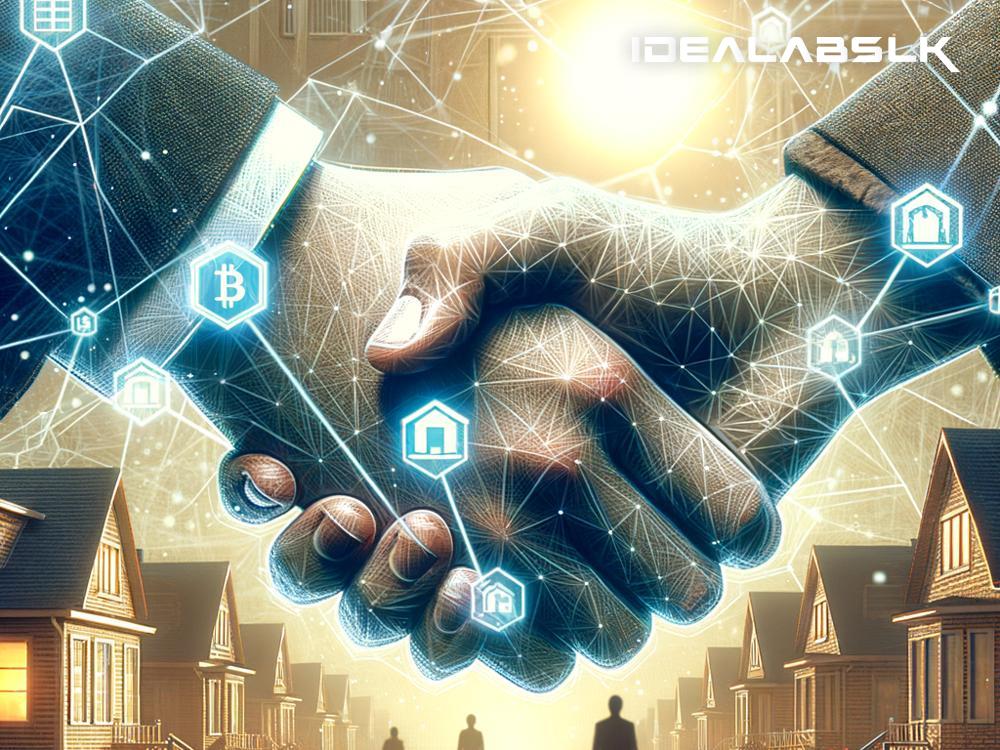Harnessing Blockchain for Streamlined Real Estate Contract Processes
In the world of real estate, buying or selling a property can feel like navigating a maze of paperwork, legal formalities, and endless steps. But imagine a world where this process is smooth, transparent, and remarkably faster. This is not a mere fantasy; thanks to blockchain technology, it's rapidly becoming a reality. Let's dive into how blockchain is poised to simplify the real estate contract processes.
Understanding Blockchain: The Basics
Before we delve into its implications for real estate, let's quickly understand what blockchain is. Essentially, it's a digital ledger that records transactions across many computers in such a manner that the registered transactions cannot be altered retroactively. This technology, famous for underpinning cryptocurrencies like Bitcoin, offers security, transparency, and efficiency – qualities that can significantly benefit the real estate sector.
The Real Estate Maze: Challenges Galore
The traditional process of buying or selling properties is fraught with challenges. It involves a barrage of documents, background checks, property inspections, and negotiations that often extend over months. Additionally, the involvement of multiple parties — buyers, sellers, agents, lawyers, and banks — adds layers of complexity, making the process prone to errors and fraud.
The Blockchain Revolution in Real Estate
Blockchain technology promises to revolutionize this cumbersome process by offering a streamlined, secure, and more transparent approach. Here’s how:
-
Smart Contracts: At the heart of blockchain's offering to real estate are smart contracts. These are self-executing contracts with the terms directly written into code. Once predetermined conditions are met, the contract automatically enforces itself. For example, the transfer of property ownership can be coded into a smart contract, which executes once payment is verified, significantly speeding up the process.
-
Transparency and Security: Every transaction on the blockchain is encrypted and recorded on a public ledger, accessible by all parties involved. This transparency reduces the chances of fraud, ensuring that everyone has access to the same information. Meanwhile, the security protocols of blockchain prevent unauthorized tampering with the records.
-
Efficiency and Cost Reduction: Blockchain can automate numerous steps in the real estate transaction process, from identity verification to property inspections and title transfers. This automation cuts down the need for intermediaries, such as lawyers and brokers, in various phases, leading to faster transactions and cost savings.
-
Record Keeping and Title Management: Blockchain provides an immutable record of property ownership history, making title searches quick and accurate. This can eliminate title fraud and mitigate legal disputes over property ownership, ensuring smooth title transfers.
Case Studies: Blockchain in Action
Globally, several initiatives have showcased blockchain's potential in real estate. Countries like Sweden have piloted projects to digitize land registries using blockchain, resulting in more secure and efficient title transfers. In the United States, companies are exploring blockchain for streamlining the leasing process, by automating background checks and lease agreements through smart contracts.
The Road Ahead: Opportunities and Challenges
The integration of blockchain in real estate promises a future where property transactions are faster, cheaper, and more secure. However, widespread adoption faces hurdles. Regulatory acceptance varies across jurisdictions, and the real estate industry, known for its resistance to change, may be slow to adopt new technologies. Moreover, there remains the challenge of integrating blockchain with the existing legal frameworks governing property transactions.
To capitalize on blockchain's potential, stakeholders in the real estate sector must collaborate with technologists, regulators, and legal experts. This collaboration can pave the way for developing standardized protocols and regulatory frameworks that support the adoption of blockchain.
Embracing the Future
As we stand on the brink of this technological revolution, it's clear that blockchain holds the key to simplifying real estate transactions. By ushering in an era of smart contracts, enhanced security, and operational efficiency, blockchain can transform the cumbersome process of buying and selling property into a streamlined experience. For buyers, sellers, and real estate professionals ready to embrace change, the future is bright—and it's built on blockchain.

